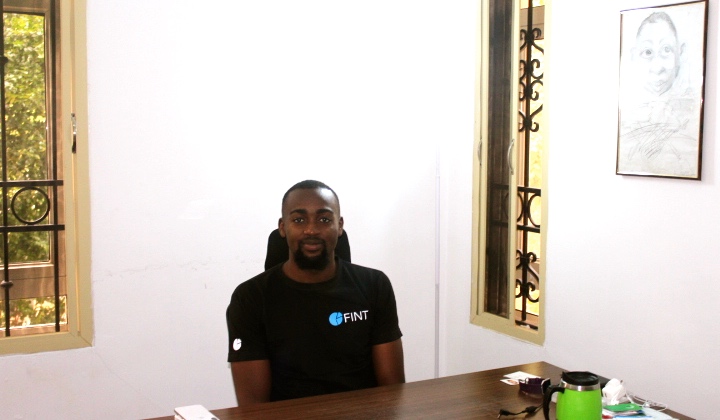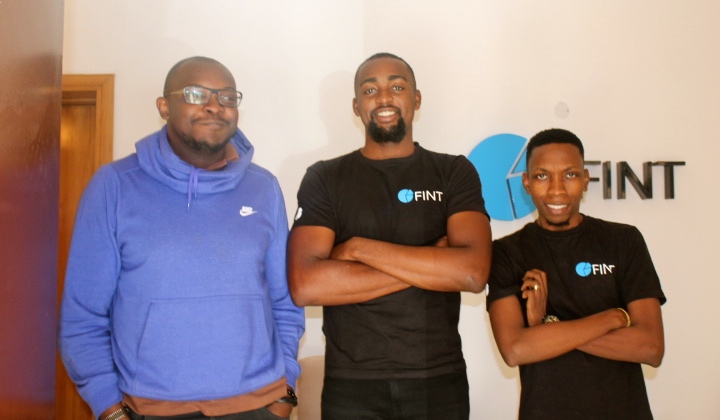FINT: Banking without the banks?
FINT was one of five (5) startups that showcased at the Stears FinTech Summit in July 2018. You can see pictures from the Summit here.
If you want a loan, you go to a bank. But between the high interest rate and collateral requirements, it might as well be mission impossible.
Not anymore.
Nigerians have found another way to get loans without banks: peer to peer lending (P2P). Here, borrowers can take loans from individual investors willing to lend their own money for an agreed interest rate.
FINT, one of Nigeria’s leading FinTech startups makes this easy by connecting lenders looking for high returns with creditworthy borrowers looking for attractive interest rates. Chiwete John-Njokanma, CEO of FINT, believes P2P lenders can step up in place of banks when it comes to getting credit to the everyday Nigerian.
FINT CEO, Chiwete, believes that peer-to-peer lending can solve our access to credit problem
The idea is not absurd, after all, P2P lenders have lower costs than banks. Banks and other financial institutions lend money out of the funds they borrowed—in the form of deposits, from the central bank, etc.—so must ultimately repay these funds, and only make a profit if the interest on the money they loan out is higher than their cost of funds.
FINT has no such worries as it does not acquire any funds itself. It is merely a marketplace to connect lenders and borrowers, so FINT has no balance sheet at risk. “As a tech company, you don’t have any cost of capital. You’re not owing money to investors, and that means you are de-risked as a business. You don’t have to provide any default capital, because it is not on your balance sheet, it is on the balance sheet of the people,” Chiwete says.
Banks make money by charging more for the money they loan out than they pay out in interest on the money they borrow. P2P lenders like FINT make money in other ways. “Our borrowers get charged in two places. One is when they take an assessment and have qualified for that loan, they then pay to move on. And when that loan has been facilitated, they make a payment too. The investor only gets charged when their payment starts coming back,” Chiwete explains.
In an industry that charges customers for every possible service—SMS fees, card maintenance, etc.—the link made between the service provided and profit is striking. For example, FINT will not deduct charges until the borrower has passed the risk assessment test or her loan has been disbursed.
As I chat with Chiwete, I realise that what makes the P2P platform successful is the availability of lenders and the measures taken to ensure that borrowers do not default. So how do companies like FINT ensure that borrowers do not default? “Our borrowing criteria are pretty strict, and the reason is simple. If we want to remain a sustainable model we have to make sure our investors are consistently getting back their principal and returns. With the hope that if they do they will increase their commitment,” Chiwete explains.
But what are these borrowing criteria?
The FINT team believes they have cracked the credit problem in Nigeria
First, personal information. Chiwete uses himself to show the sort of questions that are asked. “How can I verify that Chiwete is who he says is? How does Chiwete’s profile sit with what we believe to be a good borrower?” he says.
Second, financial capacity. FINT considers the ability of the borrower to pay back loans. “We do that through the bank statements provided. We also look at how they live, do they have dependents? Someone earning ₦10 and married with kids is different from someone earning ₦10 and living alone,” he says.
It’s easy to understand why FINT emphasises a low default rate. Lenders are likely to reinvest if they get back their returns without any hassle. Borrowers, on the other hand, are guaranteed loans again if they pay back on time. It’s a win-win for both parties.
And as Chiwete reminds me, all loans are insured in the event of death or disability. But what if a person deliberately defaults? There’s a chance that such a person will not get access to credit in the country again as FINT is connected to credit bureaus that blacklist debtors. “The credit bureau report is pushed to banks too. You can’t default on FINT and go to a bank and get a loan, you won't be able to do that,” Chiwete reveals.
As the P2P lender has access to borrowers’ BVN, they can recover funds through their bank accounts until the loan is fully repaid. And if all else fails, FINT has debt collectors come in to take up the debt.
FINT's growth has not been without the extra hands.
It is a process similar to the one that has served the largest P2P lenders like Lending Club in the United States. It is also a far cry from the current banking sector which struggles with non-performing loans of about 15%.
Given Nigeria’s high-risk and low-trust environment, I wonder if FINT would consider equity-based crowd-funding, but Chiwete is sceptical. At the moment, they are more focused on connecting the vast majority who need loans with those ready to give the loans, more than anything else “I don’t think that is our strategy. 90% of people in the financial space don’t have access to capital, those people are looking for more scale or more solutions for themselves,” he informs me. “They are driving more utility towards reducing the cost of credit for them and creating wealth for regular people, this is something we are more interested in,” he continues.
As I chat with Chiwete, I get the vibe that, presently, FINT is more focused on providing as many loans to Nigerians as possible, rather than exploring anything else. “Ideally, we see ourselves as just a place for you to be able to access financial freedom through different ways,” he says.
But what’s to come in the future? I ask.
According to Chiwete, in the next two years, FINT aims to have a larger presence in the lending stage. “When we start facilitating a billion naira a day, I will feel like FINT has really penetrated the market,” he tells me.
While a lot seems to be on the table for FINT regarding what's to come in the future, the startup is off to a good start connecting lenders with borrowers. I mean, before now it would have been a stretch getting access to loans. Now, thanks to FINT, hundreds of Nigerians now have access to microlending services.
Follow this Journalist on Twitter @AishaSalaudeen. Subscribe to read more articles here.


